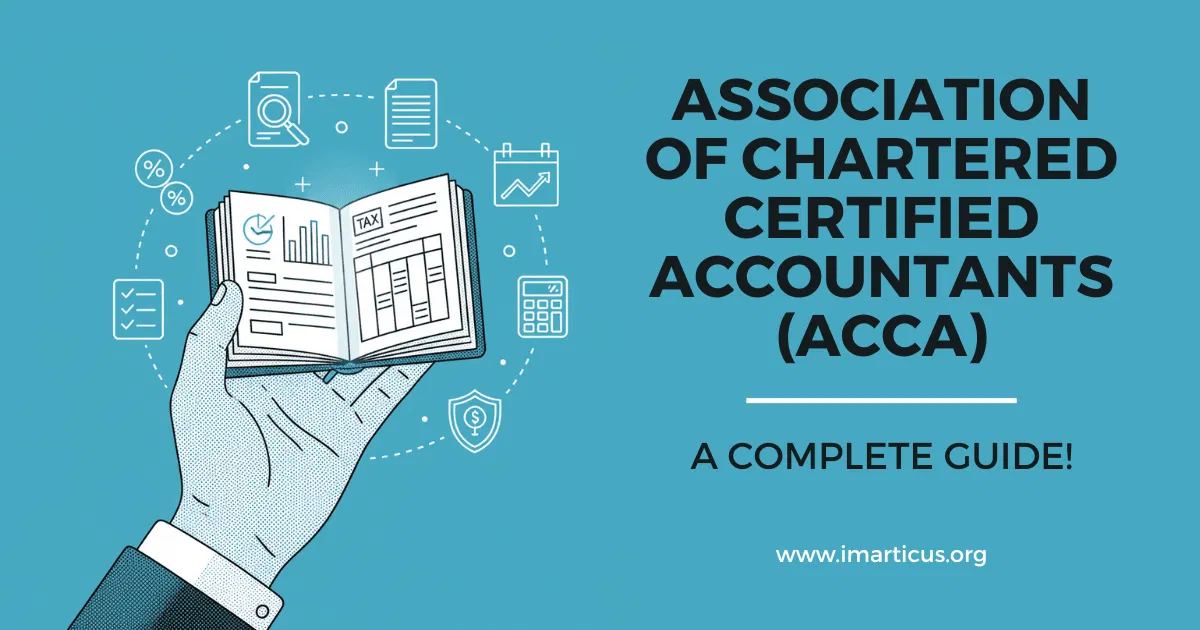In the modern interconnected world economy, there is considerable demand for professionals with a broader perspective in global business and finance. The Association of Chartered Certified Accountants (ACCA) provides students with the skill sets and ethical underpinnings necessary to navigate complex financial systems across borders. Its internationally recognized construct helps professionals manage multinational operations, interpret international financial transactions, and engage in business decisions related to international standards.
The ACCA syllabus emphasizes the importance of adaptability, leadership, and analytical thinking as essential parts of work, required for achieving success as a global finance professional. More so, through a broad range of ACCA subjects, students receive exposure to international accounting principles, auditing, taxation and financial management; they should feel prepared to engage the challenges of currency fluctuations, flexible compliance frameworks, as well as cross-border mergers and acquisitions.
How ACCA Builds Expertise in International Financial Management?
1. Expertise in Cross-Border Taxation & Financial Regulations
Cross-border commerce and investing lead to complex taxation and regulatory challenges. While members of the Association of Chartered Certified Accountants are equipped with a nuanced technical understanding of international taxation, double taxation treaties, and transfer pricing, their knowledge of complicated issues helps multinational organizations arrange tax structures and adhere to regulations and laws across jurisdictions when performing their duties.
In addition to educating members about ethical and sustainable financial practices, the Association of Chartered Certified Accountants education prepares professionals to assess the effect of legislative changes on international business operations. By knowing the global financial mechanisms, members of the Association of Chartered Certified Accountants navigate tax obligations while minimizing compliance risks by reinforcing effective international governance for economic resilience.
2. Global Financial Reporting and Transparency
As the world becomes more globalized, investor confidence and regulatory compliance are dependent on financial transparency. ACCA professionals are equipped with the skillset to prepare audited financial statements in accordance with IFRS, enabling global investors and regulators to compare and assess the financial position and performance of an entity. Transparency fosters stronger relationships between nations and facilitates more efficient capital flows.
Additionally, the ACCA subjects have an explicit focus on ethics and integrity in the work of accountants, enabling them to accurately portray the economic reality of an entity in their financial reports. The ability to communicate complex financial information represents a valuable service to multinational clients, enabling informed decision-making. Thus, ACCA professionals play a crucial role in building credibility and transparency in international finance.
3. Supporting International Trade and Investment Decisions
Individuals who hold ACCA qualifications play a crucial role in assessing international markets and providing recommendations on global trade. Their training and experience in evaluating financial analysis, investment evaluations, and risk assessments enable them to discover opportunities that cross borders. They assess the international market’s conditions, investment viability, political risk and currency risk, to assist in expansion strategies and formal recommendations.
Capitalizing on their expertise enables informed business decisions that are geared toward long-term goals. They assist in organizing financing and structuring deals, such as mergers and acquisitions, in the context of global organizations. The Association of Chartered Certified Accountants enables professionals to understand international finance, reducing risk and increasing profitability in international markets.
4. Strengthening Risk Management & Compliance Frameworks
Global operations subject organizations to several types of risks: geopolitical instability, volatility in currency, and changes in regulations. ACCA professionals are well-equipped to identify, assess and combat financial risks via strategic planning and robust compliance frameworks. Their training in risk management and corporate governance ensures that global businesses can respond to economic uncertainties.
Furthermore, ACCA members play an essential role in designing internal controls that align with global standards. ACCA subjects enable professionals to ensure compliance with IFRS and with anti-money laundering (AML) and environmental, social and governance (ESG) principles. This approach strikes a balance for international companies, mitigating reputational, legal, and financial risks while promoting sustainable international operations.
5. Enhancing Corporate Governance in Global Enterprises
Corporate governance is crucial to sustainable business growth! Association of Chartered Certified Accountants professionals can collaborate with a multinational organization to help build transparent reporting processes to support accountability and ethical financial management, and to bring in international investment.
In cross-border finance, governance is key to building, maintaining, and restoring investor confidence. ACCA members can aid organizations in establishing a governance framework conducive to effective oversight and business and professional conduct. Their focus on integrity and accountability will instil trust in stakeholders, ensuring the company continues to grow globally with credibility and accountability.
6. Promoting Ethical Financial Practices in Global Markets
Ethical standards in various countries vary, making it essential for all professionals working globally to adopt a universal moral framework. They sustain their ethics, accountability, and integrity through the Association of Chartered Certified Accountants. Their members are trained to handle complex international financial situations, all while ensuring transparency and fairness in every transaction.
In the context of cross-border finance, this ethical foundation establishes credibility among global investors, regulators, and other key stakeholders. ACCA professionals ensure that financial decisions are based on honesty and sustainability rather than short-term profit..
Conclusion
The Association of Chartered Certified Accountants qualification is essential in establishing professionals who can interpret the complexities of global business and cross-border finance. With internationally-recognized abilities in financial management, strategic decision-making and auditing, professionals are equipped to achieve growth, transparency and compliance in multinational activity. If you would like to learn more about ACCA certification, connect with the Zell Education team!
FAQs
1. What does ACCA provide for international business?
ACCA provides professionals with international accounting standards and cross-border financial information for global business.
2. How does ACCA help with cross-border finance?
They provide expertise in global taxation, risk management and financial reporting across jurisdictions.
3. How do subjects of ACCA prepare you for global roles?
The ACCA syllabus includes content on global accounting standards, international financial management and different regulatory frameworks for international transactions.



